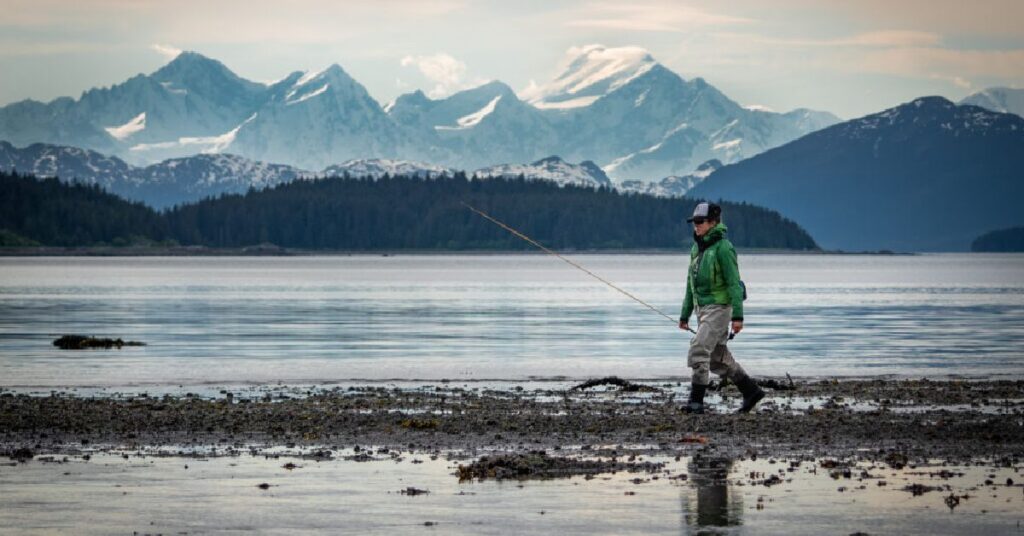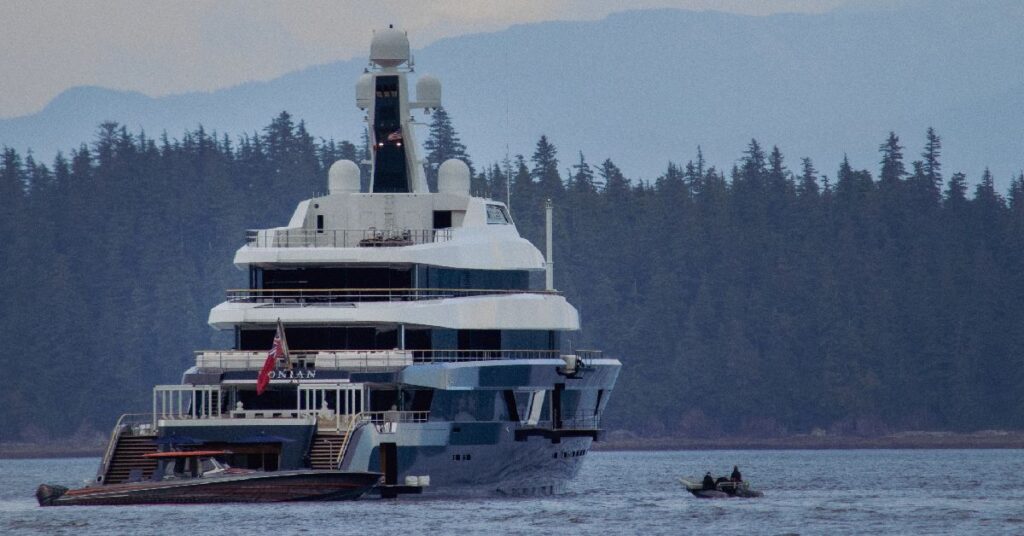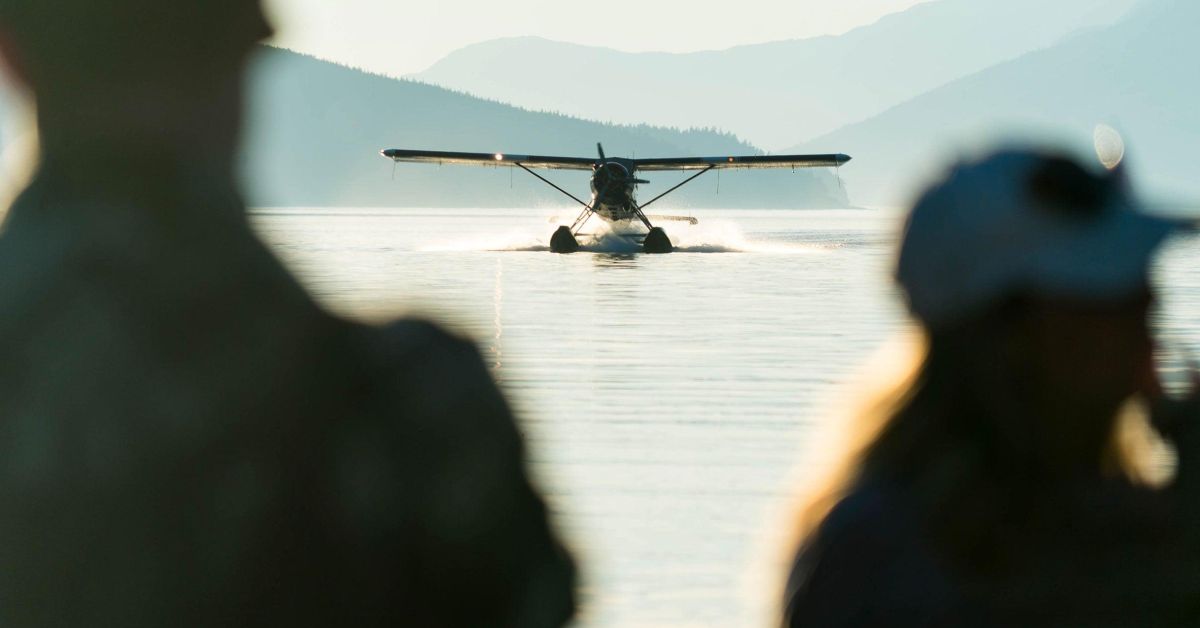
Where to Purchase Travel Insurance to Protect Your Alaskan Dream Trip
You’ve booked that dream cruise—perhaps a Mediterranean adventure, an Alaskan wilderness expedition, or a tropical Caribbean escape—and you’re already planning your shore excursions. But have you considered what happens if illness strikes in the middle of the ocean, or if a medical emergency during a port visit requires evacuation? If you’re new to travel insurance for cruising, you’re not alone. Many experienced cruisers overlook this crucial safety net until they face an emergency thousands of miles from home. Heres a guide on essential travel insurance guide for Alaska Visitors: Southeast Alaska and Beyond.
Adventure Travel presents unique risks that landlocked vacations don’t face. From medical emergencies at sea to missed connections that leave you stranded while your ship sails away, cruise-specific travel insurance isn’t just another expense—it’s essential protection for your investment and peace of mind. Understanding where and how to purchase the right cruise coverage will help you sail with confidence, knowing you’re protected both onboard and during those exciting shore excursions.

Trip Cancellation and Interruption: Protecting Your Travel Investment
Life happens, and sometimes it happens right before your long-awaited vacation. Trip cancellation and interruption coverage protects your financial investment when covered reasons force you to cancel or cut short your travels, regardless of whether you’re sailing on a cruise or staying in a mountain chalet.
Cruise cancellations can be particularly costly because you’re losing an entire floating resort experience, often booked months in advance. Beyond standard cancellation reasons like illness or family emergencies, cruise-specific coverage often includes scenarios like cabin reassignment due to mechanical problems or itinerary changes that eliminate more than 50% of scheduled ports. If your $8,000 Mediterranean cruise gets cancelled due to a family medical emergency, this coverage reimburses your non-refundable costs.
Independent travelers face different cancellation challenges. That non-refundable vacation rental in Tuscany or boutique hotel in Bali represents significant upfront investment, often paid months in advance for the best properties. Coverage protects these investments when covered reasons—sudden illness, severe weather, job loss, or family emergencies—force cancellation.
Trip interruption coverage becomes crucial for different reasons depending on your travel style. Cruisers need protection against missed connections since ships operate on strict schedules and won’t wait for delayed passengers. If flight delays cause you to miss your ship’s departure, coverage pays for transportation to the next port, plus accommodation until you can board.
For independent travelers, interruption coverage handles scenarios like cutting short your Italian villa rental because of a family emergency back home. The coverage not only reimburses unused portions of your trip but also covers additional transportation costs to get you home early. Consider the domino effect—that delayed tour in Rome could cause you to miss your ship or your connecting flight home from your hotel stay.
Baggage and Personal Effects: Protecting Your Travel Essentials
Lost or delayed baggage can disrupt any vacation, but the impact varies significantly depending on your travel style and destination accessibility. Baggage coverage provides reimbursement for lost, stolen, or damaged luggage and personal items, with specific considerations for different types of travelers.
Cruise travelers face unique baggage challenges since you can’t easily replace items once you’re at sea. If your suitcase containing formal wear for the captain’s dinner arrives after your ship has departed, you’ll need to purchase replacement items onboard—where a simple dress shirt might cost $80 in the ship’s boutique. Baggage delay coverage reimburses these necessary purchases when your luggage doesn’t make it to the ship on time.
Independent travelers staying in hotels or vacation rentals have different concerns but equal need for protection. That designer outfit for your anniversary dinner in Paris or specialized hiking gear for your Colorado mountain rental represents significant investment. Urban hotel stays offer easier replacement shopping, but vacation rentals in remote locations may leave you hours from the nearest store. If your luggage is delayed on arrival in a remote Irish countryside rental, baggage delay coverage helps you purchase essentials until your bags arrive.
For all travelers, baggage coverage extends beyond airlines losing luggage. Protection includes theft from hotel rooms, vacation rentals, or cruise ship cabins, plus loss during tours and excursions. Many travelers invest in expensive items specifically for their trips—formal wear for elegant cruise evenings, professional cameras for once-in-a-lifetime scenery, or adventure gear for active vacations. Ensure your policy covers these higher-value items, and document them with photos and receipts before departure.

Activity and Adventure Coverage: Protection for Your Experiences
Whether you’re planning shore excursions during a cruise or booking adventure tours during your independent travels, activity coverage protects both your safety and your investment in memorable experiences.
Shore excursions are often the highlight of any cruise, but they also present significant risk. Adventure activities like zip-lining in Cozumel, hiking Pack Creek to see bears in Alaska, or swimming with stingrays in Grand Cayman require specialized coverage that many standard travel policies exclude. If rough seas prevent your ship from docking in Santorini, causing you to miss your pre-paid wine tour, excursion coverage reimburses these losses.
Independent travelers face similar but often greater risks since they typically venture further from immediate help. That volcano hike in Guatemala, white-water rafting in Costa Rica, or multi-day trek in Nepal might be exactly why you chose that remote eco-lodge or adventure resort. Look for policies that specifically cover adventure sports and high-risk activities common to your destination.
Activity coverage also protects against the domino effect of adventure mishaps. If you’re injured during a shore excursion and require local medical treatment, you might miss your ship’s departure, requiring emergency transportation to rejoin your cruise. Similarly, if that mountain biking accident in Moab keeps you hospitalized, you might miss your return flight from your Utah vacation rental, requiring trip extension coverage.
For both cruise and independent travelers, ensure your policy covers the specific activities you plan. Some insurers exclude certain activities entirely, while others cover them with higher deductibles. Read the fine print carefully—what’s considered a “normal” tourist activity varies widely between insurers.
Getting ‘Cancel for Any Reason’ Coverage: Maximum Flexibility
Standard travel insurance covers cancellation only for specific, listed reasons. “Cancel for Any Reason” (CFAR) coverage provides the ultimate flexibility, allowing you to cancel your trip for literally any reason and receive partial reimbursement of your non-refundable trip costs.
CFAR coverage typically reimburses 50-75% of your non-refundable trip costs, compared to 100% reimbursement for covered reasons under standard policies. While this might seem like a drawback, the flexibility often outweighs the reduced reimbursement, especially for busy professionals whose situations can change rapidly.
To qualify for CFAR coverage on cruises, you usually must purchase your policy within 14-21 days of making your initial cruise deposit, and you must insure 100% of your non-refundable trip costs, including shore excursions booked through the cruise line. You also need to cancel your cruise at least 48 hours before departure. These requirements ensure the coverage isn’t abused while providing genuine flexibility for cruisers whose situations can change rapidly.
CFAR coverage is particularly valuable for cruise travelers because cruise cancellation penalties can be severe, especially close to departure. If you need to cancel a $10,000 cruise three weeks before sailing due to work obligations, CFAR coverage would reimburse 50-75% of your costs instead of losing everything.
Independent travelers also benefit significantly from CFAR flexibility. That non-refundable Bear Viewing trip in Juneau, or boutique hotel in Kyoto represents months of planning and significant expense. CFAR coverage provides peace of mind when life’s uncertainties threaten your travel plans, whether you’re worried about work demands, family situations, or simply changing your mind about that adventure trek you booked in a moment of enthusiasm.
Not all insurers offer CFAR coverage, so shop specifically for this feature if flexibility is important to you. Companies like Travelex, Allianz, and Travel Guard offer CFAR options on select policies.
Medical Coverage Away from Home: Your Health Safety Net
Medical emergencies don’t follow your itinerary, whether you’re exploring a European capital or sailing in international waters. Travel medical insurance becomes your lifeline when facing unexpected illness or injury far from home, and the risks vary significantly depending on your travel style.
For cruise travelers, medical emergencies at sea present unique challenges. Cruise ships carry medical facilities, but they’re typically equipped only for basic care and stabilization. A simple consultation with the ship’s doctor can cost $200-400, while helicopter evacuation from a ship can exceed $100,000. Your regular health insurance likely provides minimal coverage in international waters.
Independent travelers face different but equally serious risks. That charming bed-and-breakfast in rural Ireland or vacation rental in Costa Rica might be hours from adequate medical care. A simple emergency room visit in Europe can cost upward of $3,000, while medical evacuation from a remote mountain lodge can reach six figures. Vacation rental stays often lack the immediate assistance infrastructure that hotels provide, making comprehensive medical coverage even more critical.
Travel medical insurance covers emergency medical treatment regardless of your accommodation type, plus prescription medications and emergency dental care. Look for policies with high medical evacuation limits ($1 million minimum for international travel) and coverage for emergency reunion—bringing a family member to your bedside if you’re hospitalized. For cruise travelers, ensure coverage includes evacuation from ships, while independent travelers should verify coverage extends to remote locations and vacation rental properties.
Where to Purchase Travel Insurance
You have several options for purchasing travel insurance, each with distinct advantages:
Direct from Insurance Companies: Purchasing directly from established travel insurance companies like Allianz Travel (www.allianztravelinsurance.com), Travel Guard (www.travelguard.com), or Travelex Insurance (www.travelexinsurance.com) often provides the most comprehensive coverage options and direct customer service relationships.
Comparison Websites: Sites like InsureMyTrip (www.insuremytrip.com), Squaremouth (www.squaremouth.com), and TravelInsurance.com allow you to compare policies from multiple insurers side-by-side. These platforms are particularly useful for first-time buyers who want to understand their options without visiting multiple individual websites.
Cruise Line Insurance vs. Independent Policies: Many cruise lines offer their own travel insurance, which can be convenient to purchase during booking. However, cruise line policies are often more limited and may not cover pre-existing medical conditions or provide CFAR coverage. Independent policies typically offer broader coverage and better value, so compare options carefully before deciding.
Cruise-Specific Insurance Companies: Some insurers specialize in cruise coverage and understand the unique risks. Companies like HTH Worldwide (www.hthworldwide.com) and Seven Corners (www.sevencorners.com) offer cruise-specific policies with features like missed connection coverage and shore excursion protection.
Credit Card Companies: Some premium credit cards offer travel insurance benefits when you book travel using the card. While these benefits can be valuable, they’re often more limited than standalone policies. Review the coverage carefully and consider supplemental insurance if needed.
Making Your Decision

Start shopping for cruise travel insurance as soon as you make your final cruise payment—many benefits, including CFAR coverage and pre-existing medical condition waivers, require purchase within a specific timeframe after your booking. Don’t wait until a few weeks before departure, as you’ll miss out on valuable coverage options.
When comparing cruise policies, pay special attention to medical evacuation limits, missed connection coverage, and shore excursion protection. A policy that costs slightly more but includes comprehensive evacuation coverage and adventure activity protection often provides much better value than a basic policy that leaves you exposed to cruise-specific risks.
Your cruise represents months of anticipation and a significant financial investment. Whether you choose a basic policy for a simple Caribbean cruise or comprehensive coverage with CFAR for that bucket-list Alaska expedition, you’re making a smart decision that allows you to focus on creating memories instead of worrying about what-ifs. Set sail with confidence, knowing you’re protected both onboard and during those unforgettable shore adventures like Fly-Out Fly Fishing, or Brown Bear Viewing.
We don’t sell Travel Insurance, but feel free to contact us today and we can help you plan your Juneau Alaska Adventures! Email: info@juneauflyfishing.com or Phone: 907-723-2683
